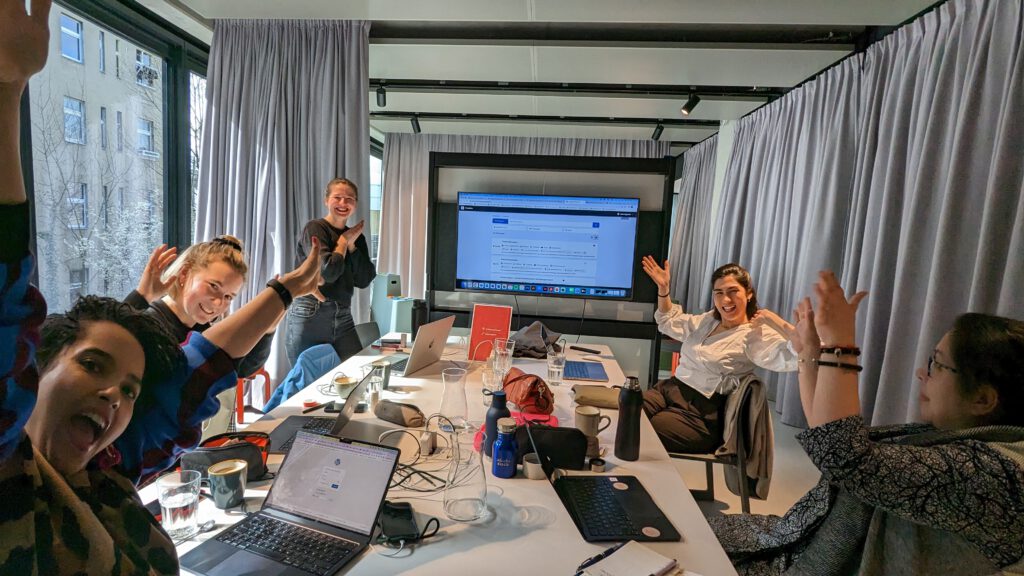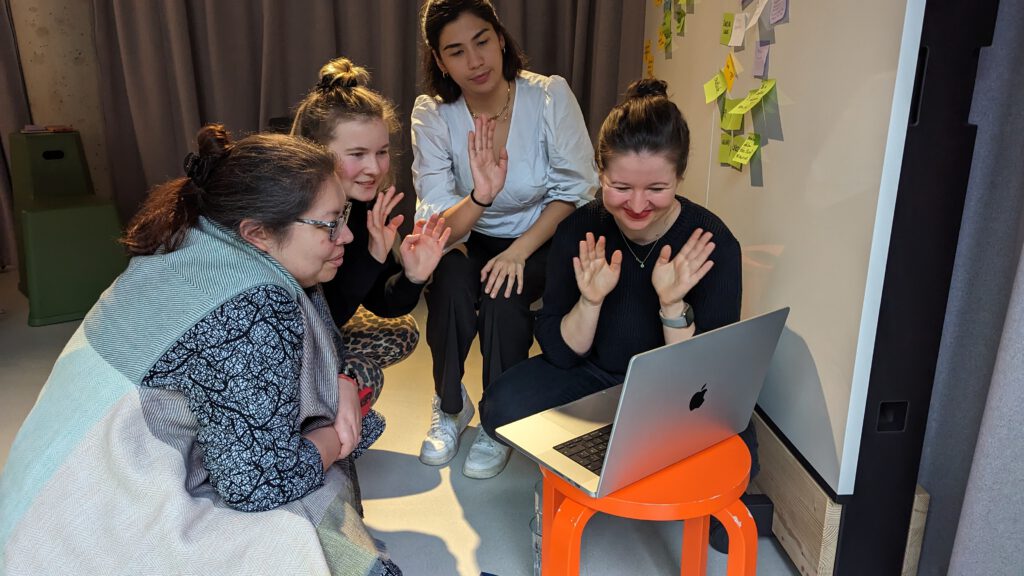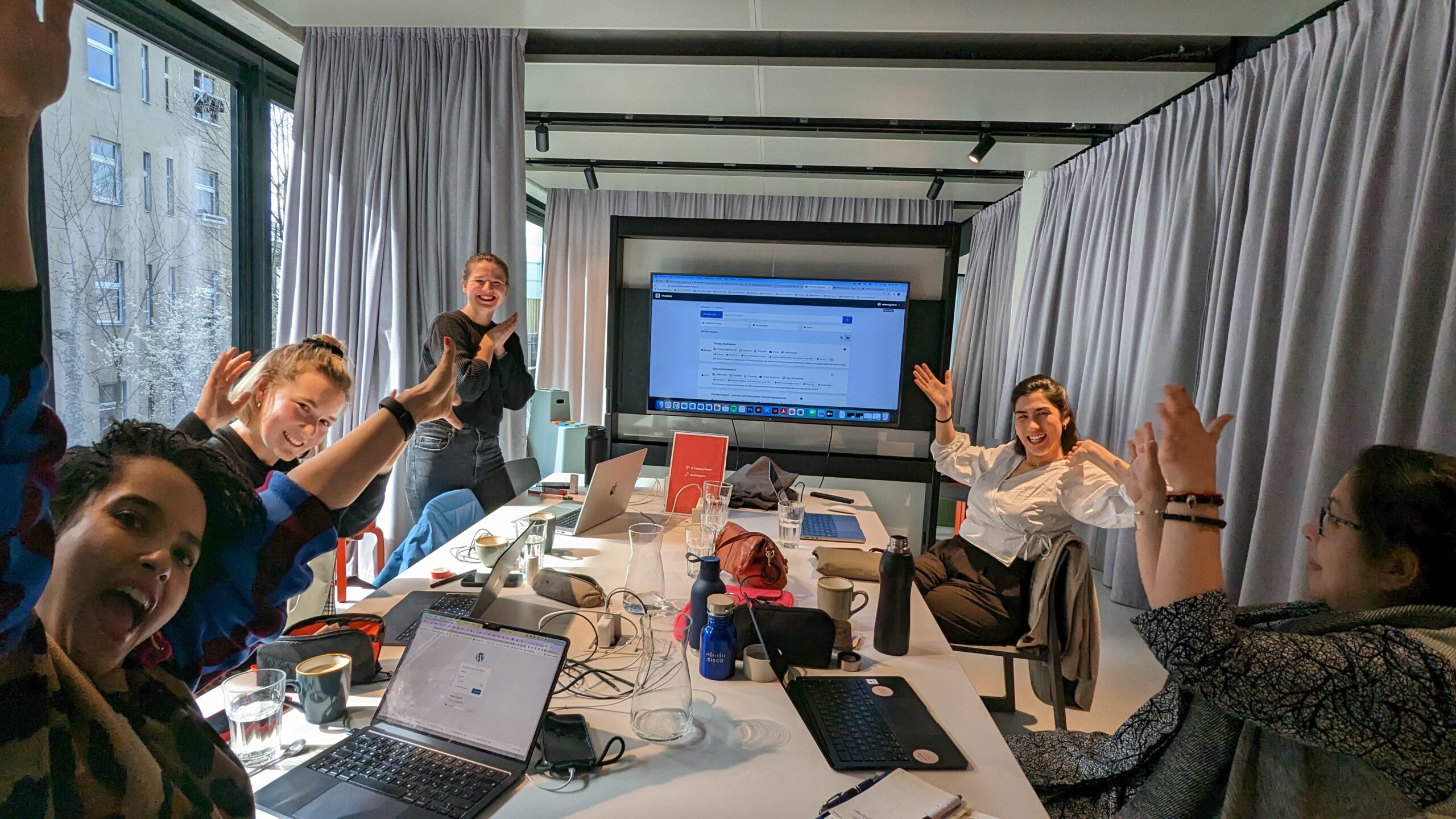Individual experiences from a facilitator’s perspective
Tl;dr
You and your team feel like you are never done and there is always more to do? OKRs support you by focussing on what is truly important now. This method only works, if the team is motivated to participate. Once this baseline is hit, you can start implementing the framework. Make it your own — each team is special and has different needs. Also be flexible, don’t expect things to work perfectly right away and set & align expectations — of the upper management as well as the team itself. Lastly: Be transparent and have empathy. With these values and mindsets in place, OKRs can be a lot of fun.
Why we opted for OKRs
I am an OKR enthusiast and facilitator without formal OKR training. It’s my passion, because I believe in the “simple” concept of priorities:
“[…] if we try to focus on everything, we focus on nothing.”
- Andy Grove, Measure What MattersWhen first reading this, it took pressure off my chest.
It gave me permission not having to do everything at once.
Because this is what I tried — dancing at too many parties at once.
But no more.
With this in mind, I successfully pitched OKRs to my start-up team of 8 people and organise as well as facilitate the process myself. This article will not focus on the theory behind OKRs, but rather on my personal experiences at GovMarket.

A start-up is labelled as a fast-paced environment for a reason. Ownership of tasks is important, but what do we do when we there are more tasks than people to complete them?
In any case, it is important to reflect upon what is most important to work on next. Priorities (and btw it used to be just a singular noun) are key.
There will always be more to work on, more tasks to check off.
But how can we make sure, this everlong lasting state of always being able to do more does not overwhelm us?
Being overwhelmed and feeling helpless can happen to any of us in any work environment — though some environments may be more likely to foster this than others. It’s not shameful to feel this way — I think we all experience this at some point in our careers. The question is what you do next. In my experience, OKRs can help with this as well. Your priorities are laid out. When you notice something being on 🔥 due to the ambiguity of our everyday work lives, try to have an open conversation about finding a solution and potentially reprioritising or rescoping together with management. Great possibility to stand up for your boundaries.
When taking the step of implementing OKRs in a team (with or without formal training / in a start-up or SME or big cooperation), I made a few observations and gained insights about how to do this and what to expect.
Learnings
1. Take time to prepare.
Plan for getting through the process as a team — this takes time, e. g. when focus on company goals:
In order to come up with company OKRs, a strategy and overview of the upcoming quarters are needed. A transparent strategy was not rolled out then – so we created one. As this was a mostly bottom-up process, it took a few weeks to facilitate and synthesise insights. These weeks pushed the process of aligning on OKRs back more than expected. It was alright, because due to the bottom-up approach, we were already aligned on what is most important. However, the reflection of business goals within the OKRs themselves took time. Now, I think we are prepared to start Q3 on time.
My take-away: (If you are facilitating the process yourself:) always plan a bit of time for the known unknowns. 😊
2. Be patient to get into the groove as a team.
In the beginning I was so excited and curious to try out and facilitate this process. Sometimes it felt like it couldn’t move fast enough, until we really get going. But: Your team does not have an indefinite amount of hours to spend on e. g. writing OKRs, just because you need them to be done. Therefore: Don’t be too strict with them — and with yourself. Ask about their availabilities to find some common ground for realistic expectations, whilst not dragging it out too long. This can help to make sure that you as a facilitator don’t get frustrated along the process.
3. Clear separation of roles whenever possible.
Whenever someone is “not just” a facilitator, but also a teammate with opinions, things can get difficult. At least this is my experience, since I strive to be objective when facilitating, but also want to make my voice heard as a teammate.
In my current organisation I own the topic and learn by doing as well as by talking to other OKR champions to learn from their experiences.
Being the only OKR facilitator in the team can be a challenge, though.
Usually, I try to avoid the 2-faced-facilitation whenever possible by removing me as a team mate. This can work, when you have someone with a similar perspective who can cover your thoughts in a technical exchange. If this is not the case, I am clearly communicating whether I speak as a facilitator or as a team mate. If you know there is a sensitive session, e. g. a retro coming up, maybe try to find someone to take over the facilitation role, who is the most objective person in this scenario.
4. Know your goal.
What is it you are looking to achieve with OKRs?
Structure? Transparency? Accountability?
All of the above?
Reflect upon your goals and assess whether you are on a good or bad track to achieving that on a regular basis.
For me, one goal is to grow as a team. The OKR process triggers so many questions and discussions that help us to understand who we are. Getting to know each other and understanding each others needs is key to growing together and increasing emotional safety. We are free to come up with new and great ideas, whilst having empathy for one another.
Once you know your goal, you can make the OKR method your own to further focus on what it is you need as a team / company.
5. Make it your own.
OKRs are the “how” answering to the strategy of the company. The overall method can be studied and copy pasted into a company structure — OR it is being used as a baseline to start with and then be adjusted along the way. Personally, I don’t think copy pasting works well — at least for us working in a start-up. We are a small team of eight people, each different from each other in experiences, background, work routines and needs. The great thing is, that with this amount of people it’s a lot easier to get feedback and adjust the method accordingly. Being willing to flexibly iterate on the method itself is key to make each team member feel comfortable with the process — especially when first implementing it. What this can look like? We did a trial quarter for everyone to write OKRs, get a feeling for how to measure something and get used to having set goals, you prioritise your work by. During this trial, OKRs were not explicitly shared with the entire team, thus gave a bit of space to team members.
One last thing, which is very close to my heart:
6. Provide constructive feedback on OKRs, but please don’t judge ‼️
Dear people in leadership positions: Please don’t ever look at someones OKRs and tell them: “Well… if this is what you think you can do within three months, okay. It does not seem like a lot to me, though — I could do this in a couple of weeks. Shouldn’t it be challenging and stretchy?”
This has been said to me once and I felt my OKR motivation leaving me in an instant. I felt like I wasn’t doing enough.
This statement does not recognise how people are challenged with different tasks, e. g. writing a LinkedIn Post can be an easy thing — especially for some extroverts — others take longer with things like that and need to feel save before sending their message out into the world.
This is just a small example, but my core message here is: Please don’t assume that just because something is easy for you, it has to be easy for others as well. We all have a different set of strengths and weaknesses and that is ok — no, amazing in fact, because diversity makes us stronger as a team.

In a nutshell 🌰
OKRs are a framework – and just as any framework, you can make it your own. Along the way, be ready for the unplanned and unforeseen, have empathy and communicate how you experience the process. It is a team experience after all.
Make it count.
And don’t let anything or anyone take the fun out of it. 🙃🤗
[This post was initially published on Medium, 16.06.2023]


No Comments.